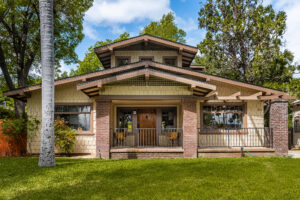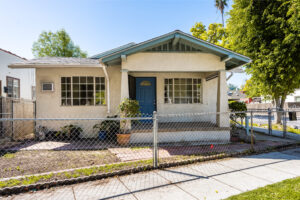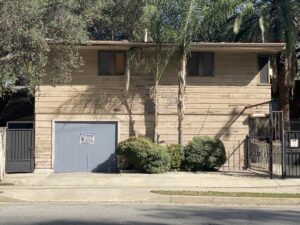Should I Buy My Home with a 15 Year Mortgage or a 30 Year Mortgage?
You’ve searched for your dream home and now you’ve found it! Congratulations! Since most buyers will be financing some portion of the purchase price with a mortgage, the question often arises: “Which is better – a 15 year or a 30 year mortgage?”. Let’s take a look at the differences between a 30 year mortgage and a 15 year mortgage and then hear what the experts have to say about which may be best for you.
What is a 15 year mortgage?
A 15 year mortgage is a loan with a fixed interest rate for the entire duration of the loan period – which in this case is 15 years. In practice this means that if you lock in a certain interest rate for the loan on day 1 your interest rate will remain identical to the initial interest rate through year 15.
What is a 30 year mortgage?
A 30 year mortgage is a loan which also has a fixed interest rate for the duration of the loan – however the length of the loan is 30 years. Therefore, a 30 year mortgage is very similar in concept to a 15 year fixed rate mortgage in that the interest rate in the 30th year will be identical to the rate locked in on day 1 of the loan.
So should I choose a 15 year mortgage or a 30 year mortgage? What are the other differences between these 2 types of mortgages?
Recent data from the Mortgage Bankers Association (a leading advocate for the real estate finance industry helping to deliver fair, sustainable and responsible real estate financing) indicates that the vast majority of home loans for new purchases are 30 year fixed rate loans. Here’s the breakdown of those numbers:
30 year fixed rate mortgage – 86.78%
15 year fixed rate mortgage – 5.35%
Other fixed rate mortgages – 1.68%
Hybrid and traditional ajustable rate mortgages (ARM’s) – 6.19%
It’s clear that a 30 year mortgage is the ‘go-to’ mortgage for most home purchases. While selecting a 15 year fixed rate mortgage will place you in the minority – it was created for a reason: to give buyers a choice on both interest rates, monthly payments, and the length of your borrowing obligation.
Here is a breakdown of some of the key differences between a 30 year fixed rate mortgage and a 15 year fixed rate mortgage to help you make an informed decision.
1.) 15 year and 30 year loans will have different interest rates – Lenders recognize that getting all their money back in 15 years is better than getting all their money back in 30 years. That is true if everything else about the loans were equivalent. In order to balance the delayed payments of a 30 year loan, the lenders simply place a higher interest rate on these loans. This extra bit of interest compensates the lender for waiting longer to get their money back. In summary – the interest rate charged on a 15 year fixed rate loan is lower than that charged on a 30 year fixed rate loan when the loans are issued during the same time period.
For example, the current interest rate environment for Los Angeles has a 15 year mortgage for purchase of a new home (conforming loan) with no discount points averaging about 3.25 percent while the 30 year loan is averaging around 4.00 percent. (You can check current rates at www.bankrate.com.) For an example – let’s assume that you are borrowing $636,150 – this is the current loan limit in Los Angeles for a conforming loan.
I’ve created a table below to illustrate the interest rate differences on our example loan.
2.) 15 year mortgages require a higher monthly payment than 30 year mortgages – Since you are paying the loan off twice as fast, the monthly payment is higher. However – it isn’t twice as high, it’s only modestly higher given that you are cutting 15 years off the loan duration and the total interest paid. This is often the reason given by borrowers for not using a 15 year mortgage to purchase property: “The monthly payment is too high!”. If you are stretched to the limit of your borrowing in order to purchase and simply can’t afford to pay more each month – then that’s the decision made right there. See the table below for a summary example of the differences we’ve just covered.
| Conforming Loan of $636,150 | ||
|---|---|---|
| 15 Year Mortgage | 30 Year Mortgage | |
| Interest Rate |
3.25
|
4.00
|
| Monthly Principle and Interest Payments |
$4,470.03
|
$3,037.08
|
| Total Number of Payments |
180
|
360
|
| Grand Total Paid Over the Life of the Loan |
$800,135
|
$1,090,312
|
| Total Interest Paid |
$168,450
|
$455,077
|
3.) You build equity much more quickly with a 15 year mortgage versus a 30 year mortgage – A 15 year loan is structured to deliver much more of your monthly payment into paying down the principle balance of the loan each month versus a 30 year loan. In fact – on a 30 year loan a huge percentage of the first few year’s payments is entirely interest. So even if you sell your home before you pay off your mortgage, you will get to keep more of the gains if you have been paying on a 15 year mortgage as you have built much more ownership more quickly in the property.
In our example from the table above – if you were to sell your home after 5 years:
With a 15 year mortgage after 5 years of payments you would have earned $175,966 in equity and still owe the bank $457,437.
With a 30 year mortgage after 5 years of payments you would have earned just $59,852 in equity and still owe the bank $575,382.
4.) Since more interest is charged each year on a 30 year mortgage you currently get a bigger tax deduction – As mentioned above, your 30 year loan payments are predominantly interest payments during the first few years. As the government currently allows you to deduct this interest from your taxes, there is a deduction there. For further information on this type of interest deduction and how it is structured and reported – please check with your tax accountant.
5.) You own your home free and clear in 15 years with a 15 year mortgage – So that’s kind of a no-brainer I know. But think about it: 15 years from now you will stop making house payments on your home forever! For many or most people, their mortgage payment is their greatest monthly expense. Imagine not having to make a house payment each month. What could you do with all that extra money?
What the Experts Say
I reached out to a few experts in their field to get their thoughts on when it’s best to use a 15 year mortgage versus a 30 year mortgage, here’s what they had to say.
Bill Gaffney is a Certified Mortgage Planning Specialist with Morningstar Mortgage (morningstarmortgage.com) a professional services company assisting California professionals and their clients with with real estate purchase, refinance, and real estate investment solutions for 19 years. Mr. Gaffney offered his expertise to the question of a 15 year versus 30 year loan, “Lenders offer a both 15 year and 30 years fixed payment loans because there truly is no “best type”. Borrowers financial situations, including income, assets, and projected income duration can make one loan superior for one borrower, and a poor choice for another. Assuming they could afford either, the choice should be determined based on their specific households current entire financial picture, as well as its future goals and challenges. A 15 year loan will typically have an interest rate .50% lower than it’s 30 year counterpart, so on the surface it might be the logical choice. However, if the taking the 15 year option would mean the borrowers can no longer maximize their contribution to their 401k plan, they are almost certainly costing themselves much more in long term wealth than the savings they would realize on a 15 year term. Or perhaps the borrowers need to save for a child’s college tuition in 5 years, or have desires to buy a 2nd home or rental property they need to save for. Or they have higher interest rate debts that would benefit them more by paying down faster. On the other side, perhaps the borrower is facing mandatory retirement in 15 years, and needs to be very conservative to sleep well at night. Or they simply feel they lack the financial discipline to put the payment savings of the 30 year to good use.”
Mark Ferguson, founded Invest Four More (investfourmore.com) to help people become real estate investors including rental property owners, flippers, wholesalers and even note owners. Mr. Ferguson has been a licensed real estate agent since 2001 and has sold over 1,000 homes. Here is his take on using a 15 year mortgage, “I think about the only case where a 15 year mortgage makes sense to me is as a forced savings plan. However, there are ways to force yourself to save money that are less risky like setting up automatic withdraws from your income into a savings account. The other issue (with a 15 year mortgage) is accessing that forced savings. You have to sell the house or refinance it to get to that forced savings, which will cost you 3 to 10 percent of the value of your home. You have to save a lot of money just to get to get to the break even point.”
Derek Vaughan, Owner and Publisher of South Pasadena Homes:
”I personally own 2 homes in South Pasadena, California at present (I’m currently shopping for my 3rd house in South Pasadena) and I financed one home with a 15 year mortgage and the other home with a 30 year mortgage. The less expensive of the 2 homes was financed with a conforming fixed rate 15 year loan. That is because I could afford the slightly higher monthly payments and I believe that there are tangible savings and peace of mind benefits from paying off the house sooner. Additionally, I can’t wait until the loan is completely paid off and I’ll be living ”rent free” in my awesome 1903 South Pasadena craftsman bungalow. The second home which I purchased was considerably more expensive and of course added a second loan obligation and potential payment each month if the home weren’t rented. Therefore, I opted for a conforming 30 year fixed rate mortgage on that property to reduce the monthly cost. If I could afford a 15 year mortgage on every property that I buy – then I definitely would.”
A quick final note – this article is for informational and illustrative purposes only and should not be considered financial advise for your individual situation. Always confer with a mortgage professional, a real estate expert, a laywer and your accountant or CPA prior to any real estate transaction to determine all of the financial and tax implications of any real estate transaction for your personal situation.




